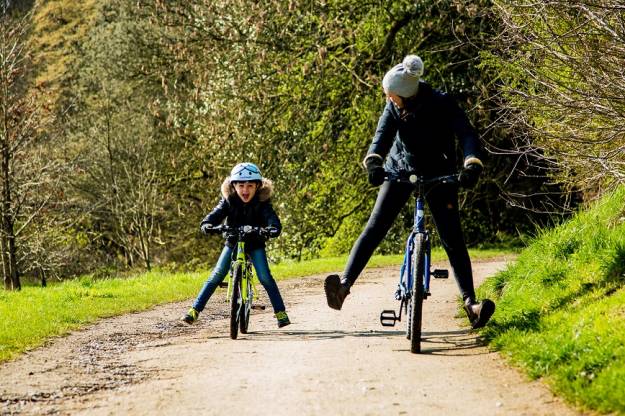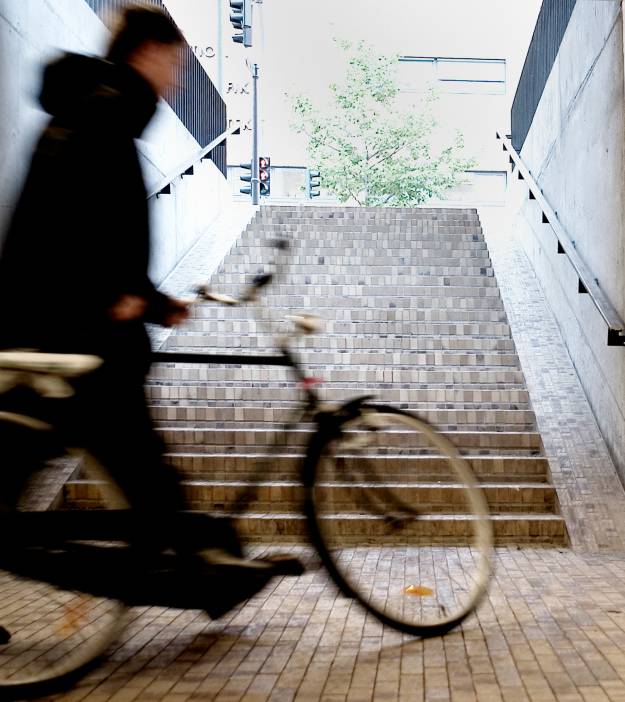British Cycling has described the BBC’s ‘War on Britain’s Roads’ programme, which aired on BBC1 yesterday evening, as a ‘missed opportunity’ to paint an accurate picture of what cycling is like on Britain’s roads; to publicise the work that is being done by government, cycling organisations and other concerned parties to improve conditions; and to take a look at European examples of how our roads could be.
The documentary told the story of an alleged ‘war’ between cyclists and motorists, through the lens of a number of cyclists using helmet-mounted cameras; interviews with cab drivers and lorry drivers and through a moving interview with Cynthia Barlow, Chair of Roadpeace, whose daughter Alex Jane McVitty was killed by a left turning cement lorry whilst cycling to work in London in June 2000.
British Cycling believes that the documentary failed to give a balanced picture of cycling on UK roads and distorted the relationship between cyclists and motorists, through its almost total concentration on accidents, near misses, violence and conflict between cyclists, pedestrians and motorists.
“the overall tone and story of the programme is an inaccurate portrayal of how people cycle and drive on the roads. The majority of people who cycle or drive do so in a safe and careful manner."
Ruth Jackson, British Cycling Campaigns Manager
Ruth Jackson, British Cycling Campaigns Manager said: “There were some good aspects to the programme, Cynthia Barlow’s story in particular was very moving and she made some excellent points on how cycle safety can and has been improved.
“But the overall tone and story of the programme is an inaccurate portrayal of how people cycle and drive on the roads. The majority of people who cycle or drive do so in a safe and careful manner.”
Prior to the programme airing Chris Boardman joined many voices from the cycling world in criticising the programme’s sensationalist angle, Tweeting “Here's an idea, I'd like to make a program on what cycling CAN be in this country, any takers...?” on 4 December.
Jackson continued: “This was a missed opportunity and we join Chris Boardman in asking for a programme on what cycling can offer the country,” alluding to the examples of major European cycling centres such as Copenhagen, Amsterdam and Utrecht, with infrastructure and legislation which provides the ideal opportunity for cycling to flourish.
The programme portrayed cycling as a dangerous, stressful activity, concentrating solely on collisions, near misses and aggressive behaviour caught on camera and posted on YouTube. Jackson, however, point out that “statistically, cycling is much safer today than it was 20 years ago, and it is as safe as walking. There are so many benefits to cycling including improved health, improved environment, less congestion and great value for money.”
The programme concluded by attempting make its protagonists see things from each other’s perspective. However in its summing up, it failed to address the work of government, cycling organisations and other interested parties in improving conditions for cyclists and other vulnerable road users.
Jackson concluded: “What would make the biggest difference for cycling, which the programme didn’t address, is strong leadership from government including putting cycling at the heart of policy.”
If having watched the programme, you wish to complain to the BBC, we recommend you do this as soon as possible and within 30 days. The BBC will only respond to complaints which are about factual errors or content which contravenes its editorial code. If you have a general opinion or other complaint then you may not receive a response. You can complain to the BBC here. Their editorial guidelines can be found here. You can alternatively complain to Ofcom here.













